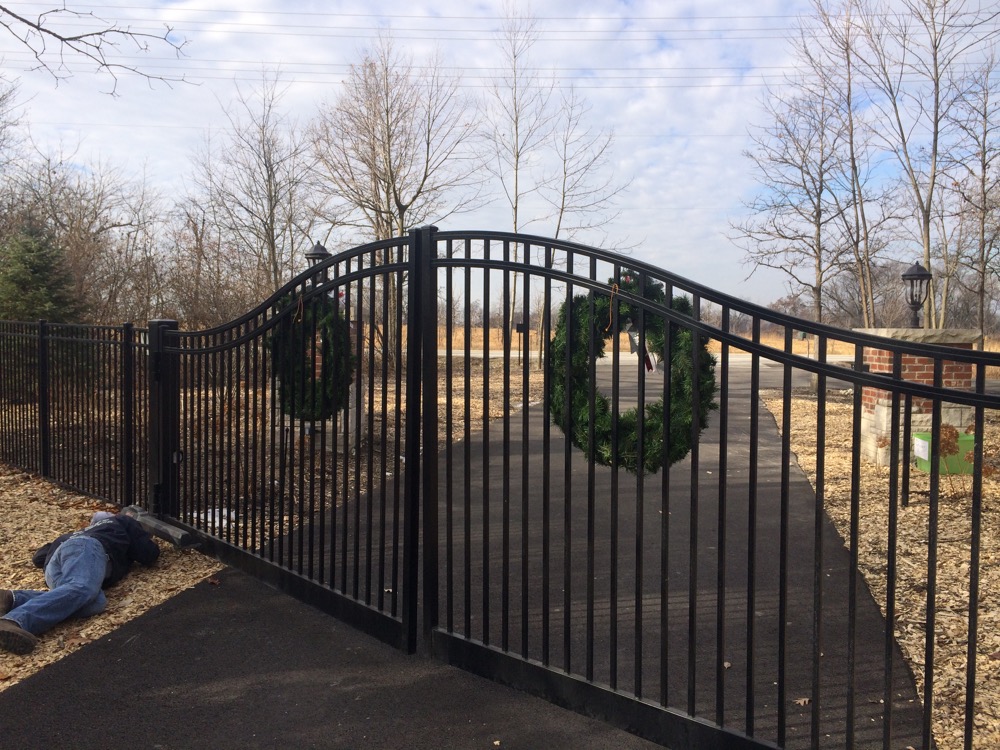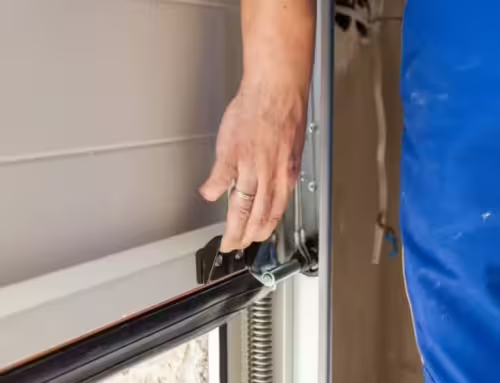Automated driveway gates, also known as electric or automatic gates, are used for various purposes to enhance security, privacy, and convenience for residential, commercial, and industrial properties. Here are some common uses and benefits of automated driveway gates:
- Security: One of the primary purposes of automated driveway gates is to enhance security. These gates provide a barrier to unauthorized access, helping to prevent intruders and enhance the overall safety of a property.
- Access Control: Automated driveway gates often come equipped with access control systems, such as keypads, card readers, intercoms, or remote controls. This allows property owners to control and monitor who can enter the premises.
- Privacy: For residential properties, automated gates offer an additional layer of privacy. They help keep unwanted visitors or solicitors at bay and provide a sense of seclusion to homeowners.
- Aesthetics: Automated driveway gates come in various designs and materials, contributing to the overall aesthetics of a property. They can enhance the curb appeal and create a more polished and sophisticated appearance.
- Convenience: Automated gates add convenience by allowing residents or authorized personnel to enter or exit the property without the need to manually open and close the gate. This is particularly useful in adverse weather conditions or when dealing with heavy traffic.
- Property Value: The installation of automated driveway gates can increase the resale value of a property. Many homebuyers see automated gates as a desirable feature for security and convenience.
- Pet and Child Safety: Automated gates help keep pets and young children safely enclosed within the property boundaries, reducing the risk of them wandering into the street or other unsafe areas.
- Commercial and Industrial Use: In commercial and industrial settings, automated gates are used to control access to parking lots, warehouses, and other facilities. They help manage traffic flow, enhance security, and provide a systematic approach to access control.
- Integration with Security Systems: Automated gates can be integrated with other security systems, such as surveillance cameras and alarms, to provide a comprehensive security solution for a property.
- Emergency Access: Some automated gates are equipped with emergency access features, allowing for quick entry or exit in case of emergencies.
What Are Automated Driveway Gates Made Out Of?
Automated driveway gates can be made from a variety of materials, and the choice often depends on factors such as the intended use, desired aesthetics, budget, and local climate conditions. Here are some common materials used in the construction of automated driveway gates:
- Wrought Iron: Wrought iron is a popular choice for automated gates due to its durability, strength, and decorative appeal. Wrought iron gates can be intricately designed and are often chosen for their classic and elegant appearance.
- Steel: Steel gates are known for their strength and are available in various designs. They can be a more cost-effective alternative to wrought iron while still providing a sturdy and durable option.
- Aluminum: Aluminum is a lightweight and corrosion-resistant material, making it a practical choice for automated gates, especially in coastal areas where corrosion may be a concern. Aluminum gates are available in various styles and can be powder-coated for added protection.
- Wood: Wooden gates are valued for their natural beauty and can add warmth to a property. They are often used in residential settings. However, wood may require more maintenance compared to metal options, and the choice of wood species can affect durability.
- Vinyl: Vinyl gates are low-maintenance, resistant to rust and corrosion, and can mimic the appearance of wood. They are suitable for various climates and are often chosen for their durability and ease of care.
- Composite Materials: Gates made from composite materials, which may include a combination of wood fibers and recycled plastics, offer a balance between the aesthetics of wood and the durability of synthetic materials. They often require less maintenance than traditional wood gates.
- Glass: In contemporary designs, automated gates with glass panels or inserts are used to create a modern and sleek look. These gates may have a metal or aluminum frame with glass elements.
- PVC: PVC (polyvinyl chloride) gates are durable, low-maintenance, and resistant to weather conditions. They are often chosen for their affordability and ease of care.
- Chain Link: While not as common for residential driveways, chain-link gates are used in industrial and commercial settings. They are known for their affordability, durability, and visibility.
- Custom Combinations: Some automated driveway gates may combine different materials for a unique and customized appearance. For example, a gate might have a steel frame with wood or composite infill panels.
The material chosen for an automated driveway gate will depend on factors such as the desired aesthetic, budget considerations, climate conditions, and maintenance preferences. It’s essential to select a material that aligns with both functional and visual requirements while considering the long-term durability of the gate.






